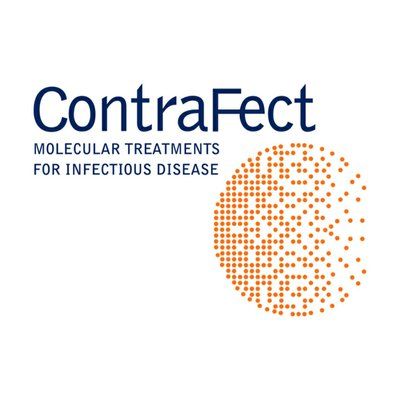预约演示
更新于:2025-09-09

The Rockefeller University
更新于:2025-09-09
概览
标签
感染
免疫系统疾病
肿瘤
小分子化药
单克隆抗体
酶
疾病领域得分
一眼洞穿机构专注的疾病领域
暂无数据
技术平台
公司药物应用最多的技术
暂无数据
靶点
公司最常开发的靶点
暂无数据
| 排名前五的药物类型 | 数量 |
|---|---|
| 小分子化药 | 12 |
| 单克隆抗体 | 8 |
| 合成多肽 | 2 |
| 酶 | 2 |
| 生物药 | 1 |
关联
30
项与 The Rockefeller University 相关的药物作用机制 GP IIb/IIIa拮抗剂 |
非在研适应症- |
最高研发阶段临床3期 |
首次获批国家/地区- |
首次获批日期- |
靶点- |
作用机制 细胞壁抑制剂 |
在研机构 |
非在研适应症 |
最高研发阶段临床3期 |
首次获批国家/地区- |
首次获批日期- |
作用机制 HIV包膜蛋白gp120抑制剂 |
在研适应症 |
非在研适应症- |
最高研发阶段临床2期 |
首次获批国家/地区- |
首次获批日期- |
169
项与 The Rockefeller University 相关的临床试验NCT06887543
The Impact of Time Restricted Eating on Type 2 Diabetes Study
Time-restricted feeding limits caloric intake to active daytime hours with fasting for 14 to 16 hours. It has shown great promise as a novel intervention for stabilizing blood glucose, reducing weight, and improving cardiovascular disease outcomes. However, this approach has not been tested on people with diabetes, a group that would benefit from improved blood glucose and weight loss.
The impact of Time-Restricted Eating on Type 2 Diabetes Study (EaT2D Study) is a randomized six-day weight stable crossover feeding study in the Day Patient/Outpatient unit of The Rockefeller Hospital investigating how the time of day that meals are eaten affects weight, blood sugar and blood pressure. The investigators will compare an early time-restricted eating intervention (80% of calories consumed before 2 pm) to a usual feeding pattern (50% of calories consumed after 4 pm) among 10 persons with type 2 diabetes to determine effects on blood sugar and small molecules found in the blood.
Studies have shown benefits of eating during active periods (mornings and early afternoon) for metabolic health (blood sugar, body weight) compared to eating during inactive periods (evening and bedtime). Eating earlier in the day may lead to reduced sugar stores, burning fat for energy, and decreased inflammation when compared to eating later in the day. The investigators will compare the effects of eating earlier during the day for six days versus later in the day for six days, on blood sugar, blood pressure, blood ketones, and other measures of metabolic health in diabetic participants. Studies in animals supports these benefits.
The impact of Time-Restricted Eating on Type 2 Diabetes Study (EaT2D Study) is a randomized six-day weight stable crossover feeding study in the Day Patient/Outpatient unit of The Rockefeller Hospital investigating how the time of day that meals are eaten affects weight, blood sugar and blood pressure. The investigators will compare an early time-restricted eating intervention (80% of calories consumed before 2 pm) to a usual feeding pattern (50% of calories consumed after 4 pm) among 10 persons with type 2 diabetes to determine effects on blood sugar and small molecules found in the blood.
Studies have shown benefits of eating during active periods (mornings and early afternoon) for metabolic health (blood sugar, body weight) compared to eating during inactive periods (evening and bedtime). Eating earlier in the day may lead to reduced sugar stores, burning fat for energy, and decreased inflammation when compared to eating later in the day. The investigators will compare the effects of eating earlier during the day for six days versus later in the day for six days, on blood sugar, blood pressure, blood ketones, and other measures of metabolic health in diabetic participants. Studies in animals supports these benefits.
开始日期2025-05-10 |
申办/合作机构 |
NCT06455605
Clinical Trial of D2C7-IT + 2141-V11 Combination Immunotherapy Administered Via Convection Enhanced Delivery in Non-enhancing Tumor Post-resection of Recurrent Glioblastoma, Followed by Cervical Perilymphatic Subcutaneous Injections of 2141-V11
The purpose of this study is to assess the safety and efficacy of the combination of D2C7-IT+2141-V11 administered in the non-enhancing tumor of patients with resected recurrent glioblastoma (rGBM) via convection enhanced delivery (CED), followed by subcutaneous cervical perilymphatic injections (CPLIs) of 2141-V11 2 and 4 weeks post infusion, then every 3 weeks for a year, and every 4-6 weeks thereafter if patients benefit from therapy.
开始日期2025-03-17 |
申办/合作机构  Duke University Duke University [+1] |
NCT06424132
Identification of Thermogenic Silencing Regulatory Factors as Biomarkers of Metabolic Health in Humans
A promising approach to correct the metabolic dysfunction associated with obesity is to activate brown fat non-shivering thermogenesis (NST). A critical limitation with NST as a therapeutic option, however, is that this beneficial process is silenced under human physiological temperature conditions and the mechanisms of how this occurs is unknown. This study will be the first to identify human NST silencing factors that may be targeted for the treatment of obesity and metabolic disorders.
开始日期2024-08-16 |
申办/合作机构 |
100 项与 The Rockefeller University 相关的临床结果
登录后查看更多信息
0 项与 The Rockefeller University 相关的专利(医药)
登录后查看更多信息
28,681
项与 The Rockefeller University 相关的文献(医药)2025-12-01·JOURNAL OF CLINICAL IMMUNOLOGY
Similar Kinetics of Pulmonary SARS-CoV-2 Load in Intensive Care Unit Patients with COVID-19 Pneumonia with or Without Autoantibodies Neutralizing Type I Interferons
Article
作者: Mayaux, Julien ; Bastard, Paul ; Cobat, Aurélie ; Puel, Anne ; Le Stang, Valentine ; Langouet, Elise ; Bizien, Lucy ; Burrel, Sonia ; Gervais, Adrian ; Chommeloux, Juliette ; Casanova, Jean-Laurent ; Boutolleau, David ; Combes, Alain ; Pineton de Chambrun, Marc ; Demoule, Alexandre ; Luyt, Charles-Edouard
PURPOSE:
The pathogenesis of life-threatening coronavirus disease 2019 (COVID-19) pneumonia in ICU patients can involve pre-existing auto-antibodies (auto-Abs) neutralizing type I interferons (IFNs). The impact of these auto-Abs on SARS-CoV-2 clearance in the lower respiratory tract (LRT) is unclear.
METHODS:
We performed a retrospective study in 99 ICU patients with COVID-19 pneumonia between March and May 2020. LRT SARS-CoV-2 load (intensity and duration) was analyzed according to the presence or not of circulating auto-Abs neutralizing type I IFNs.
RESULTS:
Among the 99 included patients, 38 (38%) were positive for auto-Abs neutralizing type I IFNs, with 5 (5%) harboring auto-Abs neutralizing IFN-α2 at any concentration, while 33 (33%) had auto-Abs neutralizing only IFN-ω at the lower concentration. SARS-CoV-2 load in the LRT and duration of viral shedding, were similar in patients with or without auto-Abs neutralizing type I IFNs. Patients with auto-Abs had the same mortality than those without auto-Abs, despite greater occurrence of renal failure and ECMO support, and longer duration of mechanical ventilation and ICU stay.
CONCLUSION:
In summary, 5% of patients with critical COVID-19 pneumonia carried auto-Abs neutralizing IFN-α2, while about 1/3 harbored auto-Abs neutralizing low concentrations of IFN-ω. The detection of either type of auto-Abs did not impact LRT viral clearance and mortality, although it was associated with greater morbidity and a longer hospitalization. These findings suggest that similar albeit hitherto unknown mechanisms of disease drive critical COVID-19 pneumonia in patients without auto-Abs against type I IFNs.
2025-12-01·JOURNAL OF CLINICAL IMMUNOLOGY
DOCK2 Deficiency and GATA2 Haploinsufficiency Can Underlie Critical Coronavirus Disease 2019 (COVID-19) Pneumonia
Article
作者: Tabatabaiefar, Mohammad Amin ; Zhang, Qian ; Rahimi, Hamid ; Vahidnezhad, Fatemeh ; Moghaddam, Atefeh Sohanforooshan ; Gudjonsson, Johann E ; Khorram, Erfan ; Babaei, Sharareh ; Jouanguy, Emmanuelle ; Vahidnezhad, Hassan ; Tsoi, Lam C ; Abtahi-Naeini, Bahareh ; Shahrooei, Mohammad ; Sherkat, Roya ; Youssefian, Leila ; Homayouni, Vida ; Cobat, Aurélie ; Rahimi, Maziyar ; Zaresharifi, Shirin ; Casanova, Jean-Laurent ; Hakonarson, Hakon ; Béziat, Vivien ; Mozafari, Nikoo ; Saeidian, Amir Hossein ; Biglari, Sajjad ; Mohaghegh, Fatemeh
The life-threatening coronavirus disease 2019 (COVID-19) affects about 1 in 1,000 healthy people under 50 without underlying conditions. Among patients with critical COVID-19 pneumonia, rare germline variants at genes controlling type I IFN immunity have been reported in up to 5% of patients. Causal etiologies in 80-85% of cases are still unknown. We analyzed two families with hypoxemic COVID-19 pneumonia for known single-gene inborn errors of immunity. In Family 1, two siblings with critical COVID-19 were homozygous for a DOCK2 variant, c.3624+5G>A. DOCK2 deficiency is a known T-cell disorder underlying severe viral diseases. The variant resulted in skipping exon 35, which was predicted to produce a frameshift truncated protein (p.L1157Ifs*12). The proband showed markedly decreased blood CD4 T-helper cell counts, impaired T lymphocyte transformation test, and increased serum IgG, IgA, and IgE levels, as documented in other DOCK2-deficient patients. In Family 2, the proband had lethal COVID-19 and HPV-2-associated multiple recalcitrant warts. She was heterozygous for a deletion in GATA2:c.1075_1102del28, p.W360Sfs*18. GATA2 haploinsufficiency is a known cause of severe viral diseases due to a lack of plasmacytoid dendritic cell (pDC) development. The proband had monocytopenia and a lack of circulating pDCs, as reported in other patients with GATA2 haploinsufficiency. Overall, both DOCK2 deficiency and GATA2 haploinsufficiency are associated with critical and often fatal COVID-19 pneumonia.
2025-12-01·JOURNAL OF CLINICAL IMMUNOLOGY
Pulmonary Aspergillosis and Low HIES Score in a Family with STAT3 N-Terminal Domain Mutation
Article
作者: Lima de Souza, Suiane ; Saarela, Janna ; Martelius, Timi ; Chen, Zhi ; Kuismin, Outi ; Asano, Takaki ; Hautala, Timo ; Kaustio, Meri ; Yannopoulos, Fredrik ; Lappi-Blanco, Elisa ; Casanova, Jean-Laurent ; Tiitto, Leena ; Varjosalo, Markku ; Seppänen, Mikko R J ; Glumoff, Virpi ; Jartti, Airi ; Keskitalo, Salla ; Pikkarainen, Keela ; Boisson, Bertrand
Abstract:
Signal transducer and activator of transcription 3 (STAT3) plays a key role in leukocytic and non-leukocytic cells. Germ line mutations in STAT3, which are mainly found in the SH2, DNA binding and transactivation domains, can be loss- or gain-of-function (LOF and GOF). STAT3 N-terminal domain (NTD) mutations are rare, and their biological effects remain incompletely understood. We explored the significance of STAT3 NTD p.Trp37* variant in a patient with chronic pulmonary aspergillosis and a low Hyper-IgE syndrome (HIES) score. In cell culture models, the expression of full-length p.Trp37* allele showed shorter STAT3 protein expression suggesting a re-initiation (Met99 or Met143). STAT3 activity using luciferase reporter assay showed a twofold-increased activity of the STAT3 p.Trp37* STAT3 protein compared with WT STAT3 at basal level and upon IL-6 stimulation. In contrast, the activity of the short pTrp37* peptide (amino acids 1 to 37) was amorphic but without dominant negative (DN) effect on transcriptional activity or STAT3 Tyr705 phosphorylation. The proteins initiated at Met99 and Met143 were surprisingly hypermorphic. In carriers’ peripheral blood mononuclear cells (PBMCs), both WT and mutated STAT3 mRNA were equally present and the global amount of STAT3 protein was not significantly reduced. In stimulated heterozygous carriers’ PBMCs, however, STAT3 Tyr705 phosphorylation and Th17 were reduced but not completely abolished. This suggests a DN effect of an unknown product of the p.Trp37* allele. Transcriptomics analysis of PBMCs from the index revealed selectively distinct gene expression. We conclude that heterozygosity for the NTD p.Trp37* STAT3 mutation defines a novel allelic form of STAT3 deficiency, associated with a chronic pulmonary aspergillosis and minor signs of HIES.
404
项与 The Rockefeller University 相关的新闻(医药)2025-09-09
导读
“有一年夏天,我在冷泉港参加了一个暑期项目,和乔治·斯特雷辛格一起工作。乔治是噬菌体研究小组的核心成员之一,是一位非常有科学素养的科学家,虽然在领域之外并不出名,但他是一位非常出色的人,非常杰出的人。我和他一起做了一个暑期实验,那是一段非常棒的经历,他一直是我敬仰的人。”
“那年夏天,也就是我大学三年级后的夏天,在冷泉港,来了几个人,以前大家都常在夏天来冷泉港,包括德尔布吕克、卢里亚、利文塔尔和噬菌体学校的所有核心人物。”
以上是刚刚离世的大卫·巴尔的摩此前采访的回忆内容。正是通过对噬菌体的了解,巴尔的摩选择了病毒学领域,并日后在这个领域做出重要发现。
“我当时觉得噬菌体研究的鼎盛时期已经结束,噬菌体对分子生物学的影响已经达到了它应有的程度,而我的职业生涯(毕竟还要5到10年才能开始我的独立研究生涯)应该另寻方向”。
巴尔的摩的成功,不仅源自于他对研究方向的选择,也与他遇到诸多优秀的导师、同行密不可分。
在他还是学术青椒时,身边就有一群出色的分子生物学,因此日后他功成名就时,也将这份优秀传承给自己的学生和身边的其他人。
如果对大卫·巴尔的摩如何对科学产生兴趣;他作为科学家的第一个十年是怎样的;逆转录酶的发现过程、诺贝尔奖以及人类基因组计划。可以参看诺奖委员会2001 年 4 月 26 日的一个采访。
我对生物学的兴趣始于高中时期,当时我在缅因州巴尔港的杰克逊纪念实验室度过了一个夏天。在那里,我第一次接触到了生物学研究,并亲眼目睹了生物学家们的工作;这段经历促使我在大学里主修生物学。
我后来进入斯沃斯莫尔学院,最初主修生物学,但后来为了完成一篇研究论文而改学化学。在斯沃斯莫尔学院的最后两年,我曾在冷泉港实验室与乔治·斯特雷辛格博士共事过一个夏天。与这位伟大的导师共事和观察的经历,让我走上了分子生物学的道路。
我开始在麻省理工学院攻读生物物理学研究生学位,但当我决定研究动物病毒时,我离开了这里,前往阿尔伯特·爱因斯坦医学院跟随菲利普·马库斯博士学习了一个暑期课程,并在冷泉港学习了当时由理查德·富兰克林博士和爱德华·西蒙博士讲授的动物病毒课程。
1959年,巴尔的摩在冷泉港学习期间,他身边是大科学家Max Delbrück
我跟随富兰克林博士在洛克菲勒研究所完成了我的论文工作,之后继续在詹姆斯·达内尔博士的指导下从事动物病毒学的博士后研究。我当时已经发现研究病毒特异性酶可以学到很多东西,因此我跟随阿尔伯特·爱因斯坦医学院的杰拉德·赫尔维茨博士学习了一段时间,向一位精通酶学的专业人士学习。
我的第一份独立工作是在加州拉霍亚的索尔克研究所,在那里我有幸与雷纳托·杜尔贝科博士共事。离开大学两年半后,我于1968年回到麻省理工学院,并一直留在那里。1974年,我加入了麻省理工学院癌症研究中心,在萨尔瓦多·卢里亚博士的指导下工作,因为我发现我的研究兴趣(之前主要涉及非致癌RNA病毒)越来越关注癌症问题。
1975年,我获得诺贝尔奖时,已经在纽约休学,研究从病毒学转向免疫学的可能性。回到麻省理工学院后,我重新调整了实验室的方向,从那时起,我就一直致力于免疫学和病毒学的融合研究。如今,我对利用逆转录病毒载体改造免疫系统产生了浓厚的兴趣。
我们在免疫学领域最重要的发现,或许是鉴定出能够重排免疫球蛋白基因的蛋白质对,即所谓的RAG蛋白。这实际上是由两名研究生David Schatz和Margie Oettinger完成的。我们转而研究调节B淋巴细胞发育的转录因子,并发现了关键的转录因子——NF-κB。
我们主要利用Abelson小鼠白血病病毒永生化的细胞研究B淋巴细胞的发育。在研究该病毒导致细胞转化和癌症的能力时,我们发现其癌蛋白是一种酪氨酸特异性蛋白激酶。这在当时是一种独特的酶活性,也是由Tony Hunter发现的。这一观察促成了格列卫(Gleevec)的研发。格列卫是最成功的抗癌药物之一,也是第一个靶向癌蛋白活性的小分子药物。
在积极开展研究项目的同时,我发现自己对科研机构的管理工作充满兴趣,至今仍保持着这两种兴趣。我初涉行政管理,源于与杰克·怀特黑德先生的邂逅。他给了我一个创办小型研究所的机会,并由他出资。我们与麻省理工学院合作,成立了怀特黑德生物医学研究所,这是一个独立的实体,主要致力于发育生物学研究。我成功吸引了一批优秀的教师,怀特黑德研究所也因此成为一所杰出的机构。其中一位教师埃里克·兰德是人类基因组测序的推动者,如今他又创立了怀特黑德研究所的分支——布罗德研究所。
1990 年,我从麻省理工学院和怀特黑德研究所来到纽约,担任我的研究生母校洛克菲勒大学的校长。由于我的一位合作者被控行为不端,影响了我的工作效率,我只在这个职位上待到了 1991 年。
1994 年,我回到了麻省理工学院,但 1997 年又被调离,担任加州理工学院 (Caltech) 的校长。过去八年来,我很荣幸也面临着管理这所伟大学府的挑战,我的妻子称其为最后的象牙塔。
学生时代,我学习的是物理科学,但作为一名生物研究科学家,我很少接触该领域的重大进展;来到加州理工学院,极大地拓宽了我对科学技术领域全面进步的欣赏。
参考资料:https://www.nobelprize.org/prizes/medicine/1975/baltimore/interview/
识别微信二维码,添加生物制品圈小编,符合条件者即可加入
生物制品微信群!
请注明:姓名+研究方向!
版
权
声
明
本公众号所有转载文章系出于传递更多信息之目的,且明确注明来源和作者,不希望被转载的媒体或个人可与我们联系(cbplib@163.com),我们将立即进行删除处理。所有文章仅代表作者观不本站。
2025-09-08
·学术经纬
根据《纽约时报》报道,著名生物学家戴维·巴尔的摩(David Baltimore)博士于9月6日在位于马萨诸塞州伍兹霍尔(Woods Hole)的家中逝世,享年87岁。他的妻子黄诗厚(Alice Huang)博士表示,Baltimore死于多种癌症的并发症。
Baltimore博士的一生在分子生物学、癌症学、免疫学与公共科学政策等前沿领域留下了宝贵的科学遗产。年仅32岁时,Baltimore博士就发现了逆转录酶。他的发现首次提出了从RNA到DNA的遗传信息流动方向,颠覆了当时的中心法则,开启了病毒学、癌症研究的新篇章。因这一成就,Baltimore博士在37岁时便摘得诺贝尔生理学或医学奖。
摘得诺奖后,Baltimore博士又在癌症机制、免疫系统信号转导等领域取得了大量开创性成果,例如打开了酪氨酸激酶研究的大门,推动了抗肿瘤药物的研发。此外,Baltimore博士还是艾滋病研究的早期倡导者。
Baltimore博士在教育方面也有着卓越贡献。他先后担任了洛克菲勒大学和加州理工学院的校长,并培养出大量优秀的科研人才。例如,2021年因发现微RNA(microRNA)及其在转录后基因调控中作用而摘得诺贝尔生理学或医学奖的Victor Ambros,就曾在Baltimore博士实验室获得博士学位。在这篇文章中,我们将回顾Baltimore博士令人钦佩的科学人生。
▲David Baltimore博士(图片来源:参考资料[1],Nobel Foundation archive)
从曼哈顿走出的天才少年
1938年3月7日,Baltimore出生于纽约曼哈顿。二年级时,他跟随父母搬到了纽约州长岛的Great Neck镇。从小时候起,Baltimore就是人们口中的“学霸”——或许还有点爱炫耀的调皮。高中时,他在写数学作业时曾经只写答案,因为所有计算过程他都可以在心中算出。
高中三年级时,Baltimore的母亲安排他去缅因州的一个遗传性研究实验室度过了一个暑假。正是在这段经历中,Baltimore对科学的热情被彻底激发了。
Baltimore的大学时期,分子生物学正处于飞速发展的黎明阶段,DNA与RNA的关系成为核心科学问题。Baltimore意识到,他也有机会在这一场科学变革中作出贡献,于是选择投身于这一未知领域。本科毕业后,他前往洛克菲勒大学开展动物病毒学的博士研究。1963年,Baltimore仅用两年就获得了博士学位,他开创了研究动物细胞中病毒的方法,博士期间的工作立即引起了学术界的关注。
两年后,Baltimore博士加入了圣地亚哥的索尔克生物研究所继续他的研究。正是在这里,他遇到了他的终身伴侣,在同一年来到索尔克生物研究所的黄诗厚博士。而当Baltimore博士在1968年成为麻省理工学院(MIT)的助理教授时,一场由他掀起的科学革命即将到来。
颠覆“中心法则”:逆转录酶的历史性发现
早在20世纪初,病毒学家Peyton Rous在研究鸡的肉瘤时就已证实病毒能够引发肿瘤。到了20世纪50年代,科学家已经发现在某些情况下,病毒还能在其他动物,如小鼠中引发白血病或其他肿瘤。相关实验室研究也表明,病毒能够诱导正常细胞的生长特性朝肿瘤转变。而病毒学家Renato Dulbecco在该领域做出了一个关键性发现——他确认病毒(包括DNA病毒和RNA病毒)的遗传物质会出现在转变后的肿瘤遗传物质中。这也表明细胞可以获得病毒的遗传信息,并因此改变生长特性。但病毒是如何做到这一点的呢?
Baltimore博士对这一问题也非常感兴趣,但当时科学界普遍认为自然界中的信息传递只发生在DNA到RNA之间,而不能反向进行。因此,DNA病毒的整合过程可以被接受,但大家很难理解RNA病毒的遗传信息是如何成为肿瘤细胞遗传物质一部分的。
1970年, Baltimore博士取得了改变分子生物学历史的发现。他与威斯康星大学麦迪逊分校的另一名研究者Howard Temin博士几乎同时发现了一种此前从未被证实的酶——逆转录酶(reverse transcriptase)。这种酶能将RNA病毒的遗传信息“逆转录”为DNA,并整合到宿主基因组中。这一过程直接挑战了Francis Crick提出的“中心法则”,揭示了遗传信息可以逆向流动。
逆转录酶的发现不仅解答了逆转录病毒如何在细胞内繁殖的问题,还为现代分子生物学和医学开辟了全新道路。Baltimore与Dulbecco、Temin也因在“肿瘤病毒与细胞遗传物质交互中的重要贡献”共享了1975年的诺贝尔生理学或医学奖。
图片来源:123RF
逆转录酶的发现为此后的科学进展带来了诸多影响。例如,逆转录酶使分离基因中的蛋白质编码部分成为可能。原本这项任务直接在基因组DNA中很难完成,因为基因组DNA包含一些会打断蛋白质模板的长序列。另外,逆转录酶还能使科学家复制成熟的信使RNA,这些片段本来会被细胞机制所剪接掉。
科研与教育的双重遗产
Baltimore博士的诺奖成果不仅改写了基础生物学的认知,还为癌症等疾病的治疗开辟了新方向。此后,Baltimore博士开始探索一种逆转录病毒——Abelson病毒的机制,该病毒能够导致小鼠产生白血病。他发现,这种病毒的致癌能力与一类从未发现的酶促能力有关,它能把磷酸基团加到蛋白质上的酪氨酸(tyrosine)残基上。这个发现开启了一个全新的研究方向:酪氨酸蛋白激酶(protein tyrosine kinase, PTK)。
后续研究发现,某些人类的酪氨酸激酶发生突变或过度活化,会导致癌症。最典型的例子是 BCR-ABL 融合酪氨酸激酶,它是慢性髓性白血病(CML)的致病原因。基于对这一机制的理解,科学家们此后研制出了能特异性抑制BCR-ABL的抗癌药物伊马替尼(imatinib, 商品名Gleevec)。
图片来源:123RF
此外,Baltimore博士对Abelson病毒的研究还催生了其他影响至今的发现。例如他找到了一种名为NF-kB的蛋白,它能激活数百个与炎症相关的基因,并在癌症等多种疾病中发挥关键作用。Baltimore博士还揭示了抗体多样性机制,包括发现两个关键基因 RAG-1 和 RAG-2。这两个基因产物能重新排列抗体基因片段,从而让有限的遗传信息产生惊人的抗体多样性。
科研之外,Baltimore博士也扮演着科学组织者与领导者的重要角色。1982年,他合作创立了Whitehead生物医学研究所,担任创始所长。他还在1997-2006年间出任加州理工学院校长,带领这所顶尖学府进入新的发展阶段。
除了诺贝尔奖之外,Baltimore博士还获得了许多其他奖项和荣誉,包括美国国家科学奖章、2021年拉斯克医学科学特殊成就奖等。他是美国国家科学院院士、美国艺术与科学学院院士,发表了数百篇科学论文。
当然,Baltimore博士的学术生涯并非全然顺风顺水。上世纪90年代,他曾因一名合作者的“论文造假”事件而被卷入争议,最终为期数年的调查证明了Baltimore博士与合作者的清白。他最终以坚守科学原则的姿态渡过风波,并继续为生物医学研究贡献力量。
如今,当我们回望David Baltimore博士的一生,可以清晰地看到:从逆转录酶的发现,到对免疫机制的深耕,再到对教育的影响,他塑造的不仅是实验室的科学进程,更是整个生物医学发展的格局。Baltimore博士的离去使世界失去了一位伟大的科学家与开拓者,但探索未知、执着追求真理的精神将继续激励下一代科研工作者。让我们向Baltimore博士表示最深的敬意和最诚挚的怀念!
参考资料:
[1] Nobel Prize in Physiology or Medicine 1975. Retrieved September 8, 2025 from https://www.nobelprize.org/prizes/medicine/1975/summary/
[2] 2021 Lasker~Koshland Special Achievement Award in Medical Science. Retrieved September 8, 2025 from https://laskerfoundation.org/winners/fundamental-discoveries-academic-leadership-public-advocacy/
[3] David Baltimore, Nobel-Winning Molecular Biologist, Dies at 87. Retrieved September 8, 2025 from https://www.nytimes.com/2025/09/07/science/david-baltimore-dead.html
欢迎转发到朋友圈,谢绝转载到其他平台。如有开设白名单需求,请在“学术经纬”公众号主页回复“转载”获取转载须知。其他合作需求,请联系wuxi_media@wuxiapptec.com。
免责声明:本文仅作信息交流之目的,文中观点不代表药明康德立场,亦不代表药明康德支持或反对文中观点。本文也不是治疗方案推荐。如需获得治疗方案指导,请前往正规医院就诊。
更多推荐
点个“在看”再走吧~
2025-08-21
·生物谷
本文研究不仅揭示了线粒体谷胱甘肽在癌细胞转移中的关键作用,还强调了细胞器及其代谢物在癌症生物学中的重要性。
WHO数据显示,每年有超过900万人死于癌症,其中约90%的癌症死亡是由于癌细胞的转移所致。作为女性中最常见的癌症类型之一,乳腺癌因其转移性病变尤其致命。一旦乳腺癌细胞从原发肿瘤中逃脱并扩散到诸如肺部等其它器官,患者的生存率就会急剧下降。因此,科学家们一直在努力探索癌细胞转移的机制,希望找到阻止这一致命过程的方法。
近日,一篇发表在国际杂志Cancer Discovery上题为“Mitochondrial glutathione import enables breast cancer metastasis via integrated stress response signaling”的研究报告中,来自洛克菲勒大学等机构的科学家们通过研究揭示了发现,名为线粒体谷胱甘肽(GSH)的关键代谢分子或在癌细胞转移过程中扮演着重要角色。
癌细胞的转移是一个复杂的过程,需要细胞在代谢上进行重大调整来适应新的生存环境,然而,对于其成功转移所必需的代谢物,科学家们此前知之甚少。这项研究中,研究人员通过线粒体代谢组学方法比较了原发性和转移性乳腺癌细胞,结果发现了关键的代谢物,即线粒体谷胱甘肽(GSH)。
文章中,他们利用创新的蛋白质标记技术来区分原发肿瘤细胞和从乳腺转移到肺部的癌细胞。通过分析这些细胞中的代谢物,研究人员发现,在转移到肺部的癌细胞中,线粒体谷胱甘肽(GSH)的水平显著增加,这种增加是由SLC25A39基因表达的上调驱动的,SLC25A39是一种线粒体GSH转运蛋白,随后他们进一步通过空间代谢组学技术直接在肺部组织中观察到GSH的分布,从而证实了这一发现。
研究者指出,SLC25A39在癌细胞转移过程中起着至关重要的作用。在遗传筛选、细胞系模型和患者来源的异种移植模型中,SLC25A39的缺失会损害癌细胞的转移能力但不影响原发肿瘤的生长。这就表明,线粒体GSH的导入在早期转移过程中是必需的,并且这一过程独立于其经典的抗氧化作用。此外,研究人员还揭示了SLC25A39如何促进癌细胞转移的机制。他们发现,SLC25A39能通过激活ATF4(一种应激诱导的转录因子)来帮助癌细胞在低氧条件下生存,这一发现不仅揭示了线粒体GSH在转移中的必要性,还指出了GSH在转移早期阶段的具体需求,即当癌细胞迅速适应新组织的应激环境时。
这项研究首次将一个特定的线粒体代谢物与癌细胞转移联系起来,这一发现不仅为癌症的细胞水平研究提供了新的视角,还可能对开发新的抗癌疗法产生深远影响。研究结果表明,针对SLC25A39的小分子药物可能会成为一种有效的治疗手段,通过阻断GSH的转运来阻止乳腺癌的转移,而且可能比针对更广泛细胞过程的疗法具有更少的副作用。
综上,本文研究不仅揭示了线粒体谷胱甘肽在癌细胞转移中的关键作用,还强调了细胞器及其代谢物在癌症生物学中的重要性。通过精确分析线粒体中的代谢物,研究人员就能更深入地理解癌细胞如何适应新的生存环境,相关研究发现为未来的癌症研究和治疗提供了新的方向,特别是在开发针对特定代谢途径的靶向疗法方面。(生物谷Bioon.com)
参考文献:
Hsi-Wen Yeh,Nicole Lauren DelGaudio,Beste Uygur,et al. Mitochondrial glutathione import enables breast cancer metastasis via integrated stress response signaling, Cancer Discovery (2025). DOI:10.1158/2159-8290.CD-24-1556
细胞疗法
100 项与 The Rockefeller University 相关的药物交易
登录后查看更多信息
100 项与 The Rockefeller University 相关的转化医学
登录后查看更多信息
组织架构
使用我们的机构树数据加速您的研究。
登录
或

管线布局
2025年11月02日管线快照
管线布局中药物为当前组织机构及其子机构作为药物机构进行统计,早期临床1期并入临床1期,临床1/2期并入临床2期,临床2/3期并入临床3期
药物发现
6
19
临床前
临床1期
3
1
临床2期
临床3期
1
22
其他
登录后查看更多信息
当前项目
| 药物(靶点) | 适应症 | 全球最高研发状态 |
|---|---|---|
Exebacase | 葡萄球菌感染 更多 | 临床3期 |
BG505 GT1.1 gp140,adjuvant | HIV感染 更多 | 临床1期 |
HepB mAb19 ( HBsAg ) | 慢性乙型肝炎 更多 | 临床1期 |
Zalunfiban ( GP IIb/IIIa ) | 冠心病 更多 | 临床1期 |
3E8(洛克菲勒大学) ( KNG1 ) | 炎症 更多 | 临床前 |
登录后查看更多信息
药物交易
使用我们的药物交易数据加速您的研究。
登录
或

转化医学
使用我们的转化医学数据加速您的研究。
登录
或

营收
使用 Synapse 探索超过 36 万个组织的财务状况。
登录
或

科研基金(NIH)
访问超过 200 万项资助和基金信息,以提升您的研究之旅。
登录
或

投资
深入了解从初创企业到成熟企业的最新公司投资动态。
登录
或

融资
发掘融资趋势以验证和推进您的投资机会。
登录
或

生物医药百科问答
全新生物医药AI Agent 覆盖科研全链路,让突破性发现快人一步
立即开始免费试用!
智慧芽新药情报库是智慧芽专为生命科学人士构建的基于AI的创新药情报平台,助您全方位提升您的研发与决策效率。
立即开始数据试用!
智慧芽新药库数据也通过智慧芽数据服务平台,以API或者数据包形式对外开放,助您更加充分利用智慧芽新药情报信息。
生物序列数据库
生物药研发创新
免费使用
化学结构数据库
小分子化药研发创新
免费使用

